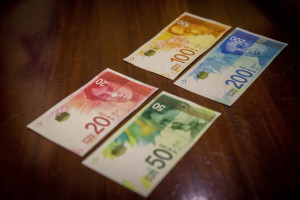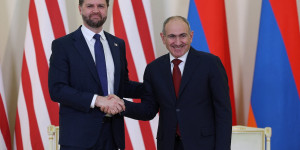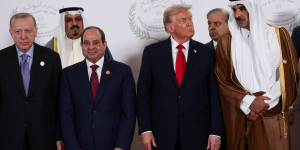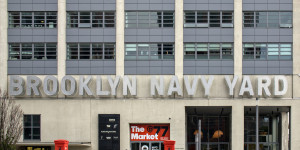How beating Hamas protects Israel’s economy

Israel must achieve a decisive victory over Hamas – not only to defend its people, but to shield its economy from both silent and overt boycotts.
Strength on the battlefield translates into strength in the marketplace. That reality has become clearer under U.S. President Donald Trump, as Israel's economy shows signs of recovery, bolstered by his firm stance against antisemitism and anti-Israel campaigns, alongside Israel's military successes against Hezbollah and Iran's nuclear program.
The war's outcome is no longer only about security; it will determine whether Israel can restore the confidence of investors, markets, and citizens who rely on stability for growth.
In May 2024, I reported for The Media Line on what economic experts described as a "silent boycott" against Israel — a quiet refusal to engage with the Jewish state in business, trade, or cultural exchange. Unlike organized boycotts, it happens discreetly: individuals, companies, or governments avoid buying from or partnering with Israel without publicly announcing it.
Today, according to Yoel Israel, founder and CEO of the high-tech marketing firm WadiDigital and IsraelTech, that trend has declined. He attributes the shift in part to Trump's attitude.
"Donald Trump is going strongly after antisemitism on campus, anti-Israel on campus. He is singling out anyone who has a double standard on Israel, making it illegal," Israel told ALL ISRAEL NEWS. "Donald Trump's leadership has led Americans to do far less boycotting."
But, he added, it's not only Trump's policies that matter – it's also the perception. Under Trump's strong pro-Israel rhetoric, people see Israel as stronger, and the stronger Israel appears, the more others want to align with it rather than boycott it.
The numbers are starting to speak for themselves. In 2022, before the October 7 massacre, Israel's GDP grew by 6.5%. Growth slowed sharply to about 2.3% in 2023, followed by another dip in 2024, when it hovered around 1.6%, according to multiple financial sources. However, Israel's Seasonally Adjusted Annual Rate of expected GDP now stands at roughly 3.4% – a clear rebound.
Similarly, in the first quarter of 2025, startups raised over $9 billion – a 54% increase over the second quarter of last year and the strongest six months since 2021.
What does remain, however, is consumer boycotting by segments of the political left and some Muslims, Israel explained.
"The problem with the left is that they lack a sense of belonging and community, and what brings them together is the absolute hatred of Israel and the Jewish people," Israel told AIN. He said many people who want to show they are part of this "in-group" do so by boycotting Israeli products and posting about it online.
He compared the trend to the Black Lives Matter movement, when posting a black square on social media became symbolic.
"People were already against racism, but it became the cool thing to do," Israel said.
Still, he estimated that such boycotts account for no more than 5% to 10% of any given product market.
A recent video posted on 𝕏 showed two Italian public employees filming themselves throwing away medicine manufactured by the Israeli pharmaceutical company Teva.
In another example, actress Gal Gadot suggested in a recent interview that anti-Israel sentiment may have contributed to the weak performance of her latest film, Snow White. Although she later walked back the comment, the remark left the question of a silent boycott lingering in the air – a reminder that Israelis could face growing isolation if the war in Gaza does not end in victory.
If Israel eliminates Hamas and ushers in an era of permanent, Hamas-free peace, it could reap the benefits of normalization with Saudi Arabia and the prosperity that peace would bring.
"Saudi Arabia has said themselves we'll only do peace with a strong Israel," Israel noted. "They want Hamas out of Gaza."
This kind of calculation is not unique to Israel.
When the Russia-Ukraine war broke out, many companies considered distancing themselves from Ukrainian employees, contracts, and products. These business leaders were not anti-Ukraine; they simply did not want to risk their own businesses.
And that is the crux of the matter: strength protects Israel not only from rockets, but from boycotts. The stronger Israel appears on the battlefield, the more secure its place in the global marketplace.
.jpg)
Maayan Hoffman is a veteran American-Israeli journalist. She is the Executive Editor of ILTV News and formerly served as News Editor and Deputy CEO of The Jerusalem Post, where she launched the paper’s Christian World portal. She is also a correspondent for The Media Line and host of the Hadassah on Call podcast.
You might also like to read this:
















